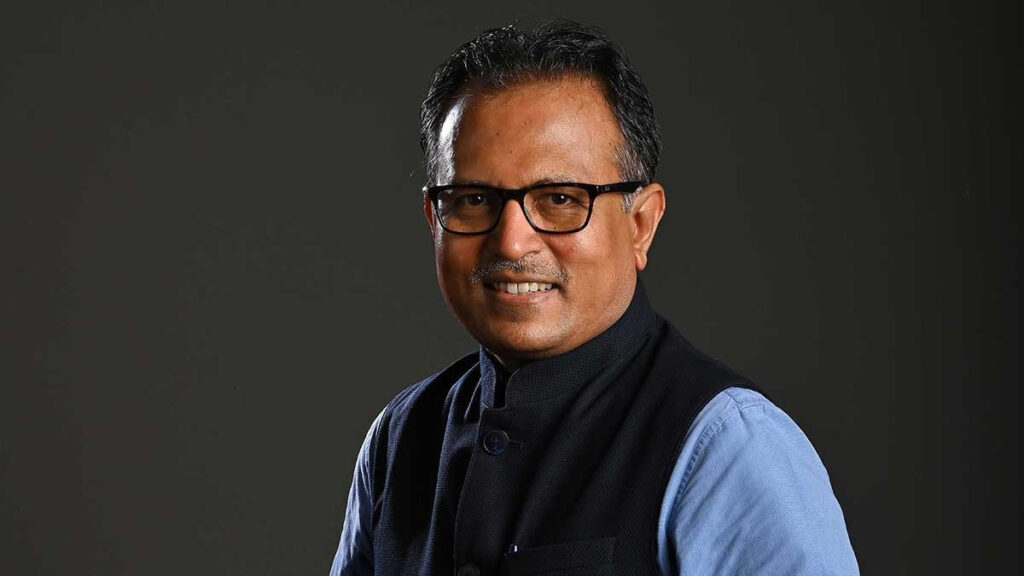Nilesh Shah, the Managing Director of Kotak Mahindra Asset Management Company (Kotak AMC), has stirred conversation in financial circles by pointing out a legal but controversial method some high-net-worth individuals (HNIs) are using to avoid paying capital gains tax in India.
Speaking at a recent event, Shah explained how some wealthy investors are taking advantage of India’s Double Taxation Avoidance Agreements (DTAAs) with countries like the United Arab Emirates (UAE), Singapore, Mauritius, and Portugal. These tax treaties allow capital gains to be taxed only in the investor’s country of residence. And since some of these countries—like the UAE—do not charge capital gains tax, investors who become residents there are able to legally avoid paying taxes on their gains in India.
How the Loophole Works
Under Indian tax law, if a person stays outside of India for 183 days or more in a financial year, they can be classified as a “non-resident Indian” (NRI) for that year. This status opens the door to certain tax benefits. In the context of DTAAs, a person who qualifies as an NRI and resides in a country with a favorable tax treaty can claim tax exemptions on capital gains.

For example, if an Indian investor spends more than 183 days in the UAE in a financial year and sells Indian mutual fund units during that time, the capital gains from that sale may not be taxable in India. That’s because, under the India-UAE tax treaty, such gains are taxed only in the country of residence—which in this case, does not impose capital gains tax at all.
In essence, by simply spending around six months in the UAE, these investors are able to save large amounts of money that would otherwise go to the Indian tax authorities.
Case That Sparked the Debate
This issue came to light recently when the Income Tax Appellate Tribunal (ITAT) in Mumbai ruled in favor of a Singapore-based investor who had made over ₹1.35 crore in capital gains from Indian mutual funds. The tribunal ruled that, due to the India-Singapore tax treaty, the investor did not have to pay capital gains tax in India, as long as they were a resident of Singapore for the relevant period.
This case set a precedent and highlighted how India’s own agreements are now being used to legally bypass its tax system—raising eyebrows among tax experts and financial regulators.
Shah’s Stand: Legal, But Not Ethical
While this practice is legal under current laws, Nilesh Shah has raised concerns about its ethics and long-term consequences. He called this tactic “seasonal non-residency”—where individuals temporarily change their tax status by spending 183 days in a tax-friendly country, only to return to India afterward.
Shah argued that although these individuals are technically following the law, they are taking unfair advantage of the system. He said that this trend could lead to an erosion of the tax base in India and may eventually harm the economy if more people begin to adopt this method.
“If left unchecked,” Shah said, “this issue, which may look small today, can become a significant problem tomorrow.”
Call for Policy Reforms
Shah has urged the government to take swift action and close this loophole before it becomes a bigger issue. He proposed that legal amendments be introduced to ensure that capital gains are taxed fairly—regardless of temporary shifts in tax residency. He believes that taxes should ideally be paid where the economic activity takes place, and credit for the tax paid should be given in the reciprocal country.
Shah’s recommendation is to revisit these DTAAs and create more precise definitions and conditions for tax residency, perhaps focusing more on the “center of vital interests” or where one actually earns and spends money, rather than just days stayed in a country.
What This Means for Indian Taxpayers
For everyday Indian investors, this revelation may not change much in the short term. But for ultra-wealthy individuals and financial planners, this is a huge area of interest—and potential abuse.
It also opens up questions about fairness. Indian residents who dutifully pay capital gains tax on their investments may feel that the system is skewed in favor of those who can afford to spend half the year in Dubai or Singapore to save on taxes.
Shah has stressed that this loophole creates an uneven playing field between regular Indian taxpayers and those exploiting international tax treaties for personal gain. He emphasized that tax benefits from such treaties should be reserved for true foreign citizens or long-term NRIs, not people who change their residency status temporarily just to avoid taxes.
Broader Implications for India’s Tax System
India has been actively working to widen its tax base, increase compliance, and improve transparency in the financial system. The government has introduced measures like the Annual Information Statement (AIS), improved digital monitoring, and stricter rules on foreign accounts and transactions.
However, international tax treaties—while useful for avoiding double taxation—have now become potential gateways for tax avoidance. Experts say that if such loopholes are not closed, it may encourage more individuals to exploit them, reducing overall tax collections and creating social inequality.
Moreover, it may even impact investor sentiment, as regulatory uncertainty or rushed amendments could make foreign investors nervous. So, striking a balance between fair taxation and investor-friendly policies will be key.
Conclusion
Nilesh Shah’s bold remarks have opened up a necessary discussion on the cracks in India’s taxation structure. While the practice of shifting residency to save on taxes is legal, it raises ethical and economic concerns that the government can no longer ignore.
As India continues to push for stronger domestic growth and global investment, ensuring fairness in its tax system is more important than ever. Whether it’s through reforming DTAAs, redefining tax residency, or simply plugging specific loopholes, action must be taken to ensure that all contributors—whether local or global—pay their fair share.
Shah’s warning is clear: act now, or face bigger challenges later.
Abdulaziz Kushalnagar, Respected Expat from Karnataka, Passes Away in Riyadh After 35 Years



